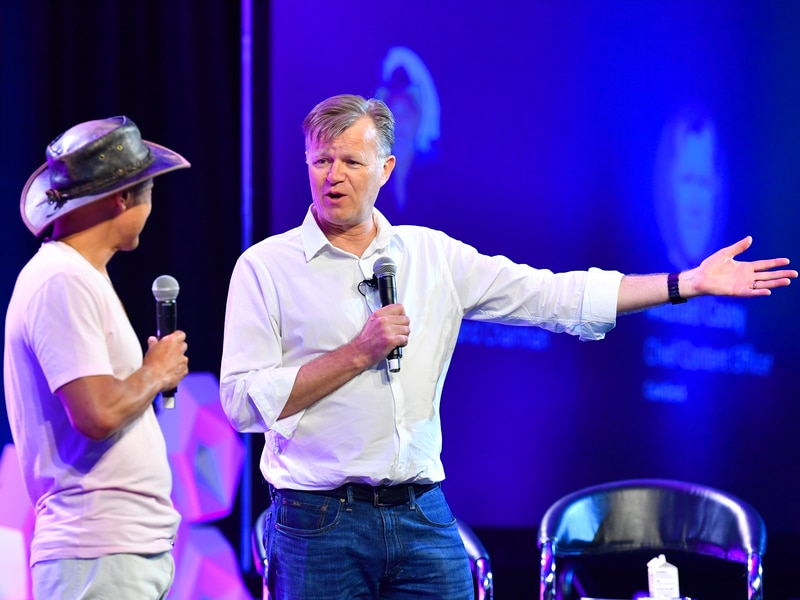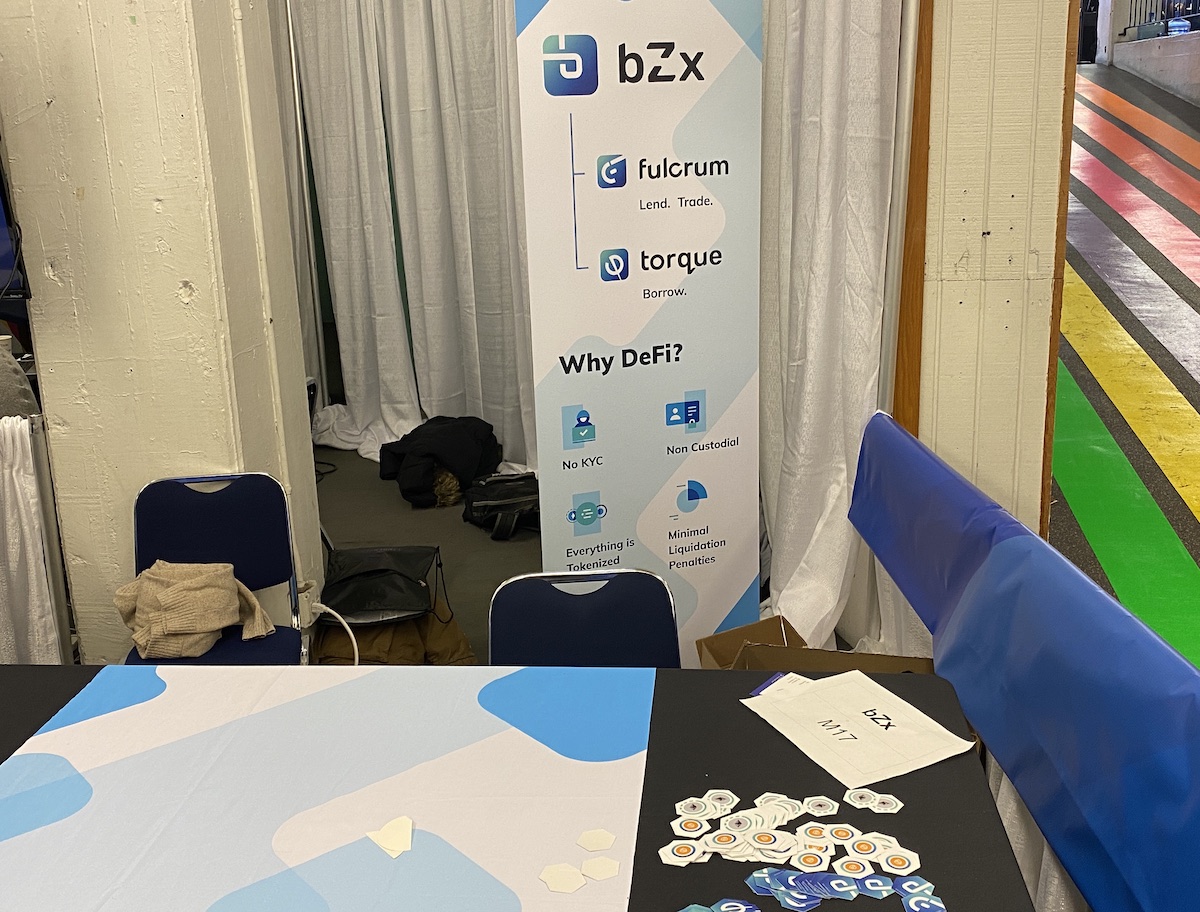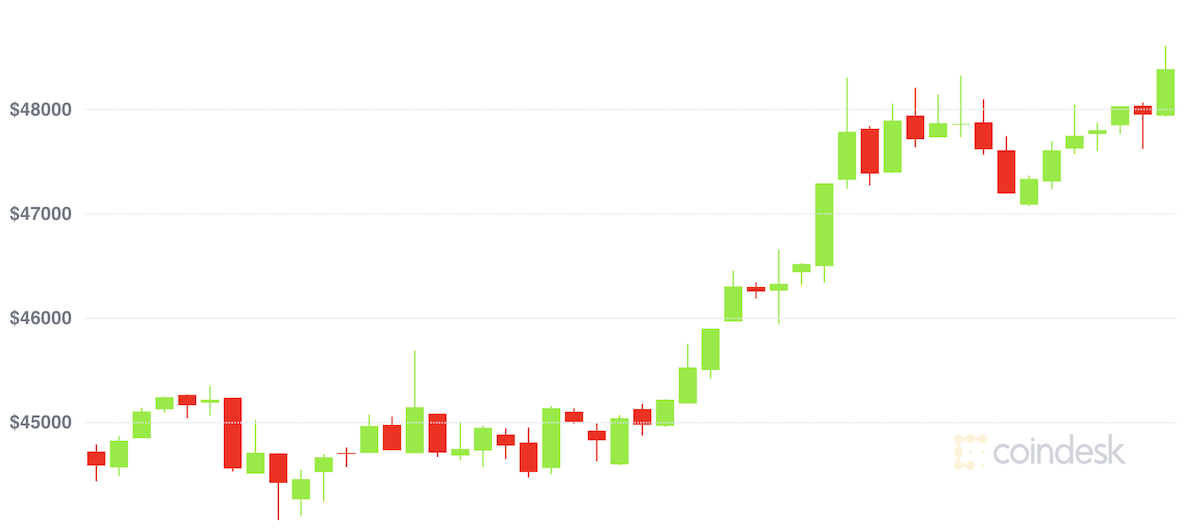How Data Centralization Ends by 2030
How Data Centralization Ends by 2030
The next 10 years will witness the systematic manipulation of human life at a scale unrivaled in history. For all the recent controversies over privacy and surveillance, the real threat is ahead of us.
Unless new approaches to online identity and data management take hold, both governments and private actors will move inexorably from knowing you to shaping you. Blockchain-enabled decentralization will develop as the only viable response to the iron logic of data centralization.
Kevin Werbach is Professor of Legal Studies and Business Ethics at the Wharton School, University of Pennsylvania, where he focuses on emerging technologies such as AI and blockchain. This essay placed first in the “Decentralized Futures” writing contest, organized by NESTA, a U.K. innovation foundation.
Blockchain believers often talk as though today’s early-adopter use cases, such as cryptocurrency trading and decentralized finance, will lead straight to mass-market adoption. As the inevitable ‘killer apps’ appear, so the story goes, blockchain-based systems will conquer the mainstream. One might imagine that we’ll all soon be trading digital collectibles and relying on token-curated registries for accurate information. Governments will lose control over money, and blockchain-based smart contracts will replace court-enforced legal agreements. Uber, Facebook and the banks will wither away in the face of tokenized alternatives.
This narrative is wishful thinking. In most markets, intermediaries will endure for the same reasons they always have: they provide value. The Ubers and Facebooks – and yes, even the banks – tame complexity and produce coherent, convenient, de-risked experiences that no decentralized community can ever match. Early adopters use blockchain-based systems for ideological reasons or to get rich on cryptocurrency speculation. The billions behind them in the mainstream will not. The lock-in power of network effects creates high barriers for alternative economic systems. And the need for trust disqualifies decentralized solutions that are havens for criminals, incapable of effective compliance or vulnerable to catastrophic attacks – which, regrettably, means virtually all of them today.
Truly decentralized blockchain systems will reach critical mass not out of hope but out of necessity. Powerful actors and mainstream users will adopt blockchain as a counterbalance to digital behavior-shaping by governments and private platforms. Dramatic innovations such as decentralized autonomous organizations (DAOs), which manage activity automatically through smart contracts, will become significant at the end point of this process, once the foundations are in place.
Big data and artificial intelligence, pitched as freeing us from human frailties, are becoming powerful tools for social control. This is occurring along two parallel tracks: surveillance authoritarianism and surveillance capitalism. Through massive data collection and aggregation, China’s social credit system envisions an airtight regime of perfect compliance with legal and social obligations. Many other governments, including liberal democracies, are adopting similar techniques. The potential for catching terrorists, child predators and tax evaders is simply too appealing – whether it’s the real objective or a cover story.
What we need is a technology that allows for sharing without giving up control. Fortunately, it exists.
Meanwhile, private digital platforms are using troves of data to shape online experiences consistent with their business models. What you see online is, increasingly, what maximizes their profits. Companies such as Google, Amazon, Tencent and Alibaba can build the best algorithms because they have the most data. And they aren’t interested in sharing.
Regulatory interventions will fail to derail the self-reinforcing momentum for ever more centralized data repositories. They may even accelerate it by creating layers of compliance obligations that only the largest firms can meet. Europe’s General Data Protection Regulation (GDPR) actually increased the market share of Google and Facebook in online advertising, and so it is not surprising to see such incumbents actively welcoming the prospect of more regulation.
The only lasting solution is to change the economics of data, not to impose private property rights; that would accelerate the market forces promoting data centralization. Giving you ‘ownership’ over your data means giving you legal cover to sell it, by clicking ‘OK’ to a one-sided contract you’ll never read. The problem is not ownership, but control. In today’s algorithm-driven world, sharing and aggregating data increases its value, producing better models and better predictions. The trouble is that once we share, we lose control to centralized data hogs.

What we need is a technology that allows for sharing without giving up control. Fortunately, it exists. It is called blockchain. Blockchain technology is, fundamentally, a revolution in trust. In the past, trust required ceding control to counter parties, government authorities or intermediaries who occupied the essential validating roles in transaction networks. Blockchain allows participants to trust the results they see without necessarily trusting any actor to verify them. That’s why major global firms in health care, finance, transportation, international trade and other fields are actively developing cross-organizational platforms based on blockchain and related technologies. No database can provide a trusted view of information across an entire transactional network without empowering a central intermediary. Blockchain can.
Adopting any new platform at scale, along with the necessary software integration and process changes, takes time – especially when the technology is so immature. But today’s incremental deployments will serve as proofs-of-concept for the more radical innovations to come. Chinese blockchain networks are already managing tens of billions of dollars of trade finance transactions. Pharmaceutical companies are tracking drugs from manufacturing to pharmacies using the MediLedger platform. Boeing is selling a billion dollars of airline parts on Honeywell’s blockchain-based marketplace. Car insurance companies are processing accident claims in a unified environment for the first time. These and other enterprise consortia are doing the essential technical and operational groundwork to handle valuable transactions at scale.
The need for transformative approaches to data will become acute in the next five years. Every week, it seems, another outrage comes to light. For instance, users who posted photos under Creative Commons licenses or default-public settings were shocked they were sucked into databases used to train facial-recognition systems. Some were even used in China’s horrific campaign against Uighur Muslims. Clearview AI, an unknown startup, scraped three billion social media images for a face identification tool it provided, with no oversight, to law enforcement, corporations and wealthy individuals. The examples will only get worse as firms and nations learn new ways to exploit data. The core problem is there is no way to share information while retaining control over how it gets used.
Blockchain offers a solution. It will be widely adopted because, behind the scenes, the current data economy is reaching its breaking point. Outrage over abuses is building throughout the world. The immensely valuable online advertising economy attracts so much fraud that the accuracy of its numbers is coming into question. Communities are looking for new ways to collaborate. Governments are realising the current system is an impediment to effective service delivery.
The technologist Bill Joy famously stated that no matter how many geniuses a company employs, most smart people work somewhere else. The same is true of data. Even giants such as Google, Facebook and Chinese government agencies need to obtain information from elsewhere in their quest for perfect real-time models of every individual. These arrangements work mostly through contracts and interfaces that ease the flow of data between organisations. As Facebook discovered when Cambridge Analytica extracted massive quantities of user data for voter targeting, these connection points are also vulnerabilities. As tighter limits are placed on data-sharing, even the big players will look for ways to rebuild trust.
The blockchain alternative will begin innocuously. Government authorities at the subnational level are deploying self-sovereign identity to pull together information securely across disparate data stores. This technology allows anyone to share private information in a fine-grained way while still retaining control. You shouldn’t have to reveal your address to confirm your age, or your full tax return to verify your stated income. The necessary cryptography doesn’t require a blockchain, but the desired trust relationships do.
Once people have identities that belong to them, not to banks or social media services, they will use them as the basis for other interactions. Imagine a world where you never need to give a third-party unnecessary data to log into a website, apply for a job, refinance a mortgage or link your bank account to a mobile payment app. Where you can keep your personal and professional profiles completely separate if you choose. Where you can be confident in the reputation of a car mechanic or an Airbnb or a product made in China without intermediaries warping ratings for their own gain. The convenience of user experiences we enjoy within the walled gardens of digital platforms will become the norm across the vastness of independent services.

We will gradually come to view access to our personal information as an episodic, focused interaction, rather than fatalistically accepting an open season based on preliminary formal consent. Major hardware companies such as Apple, which don’t depend on targeted advertising, will build decentralised identity capabilities into their devices. They will add cryptocurrency wallets linked behind the scenes to existing payment and messaging applications. Stablecoins – cryptocurrencies pegged to the dollar, pound or other assets – will help tame volatility and facilitate movement between tokens and traditional currencies. Privately created stablecoins will coexist with central bank digital currencies, which are under development in most major countries throughout the world.
Once this baseline infrastructure is widely available, the real changes will start to occur. DAOs will begin to attract assets as efficient ways for communities to achieve their goals. These entities won’t replace state-backed legal systems; they will operate within them. As numerous controversies, crashes and hacks have already demonstrated, software code is too rigid for the range of situations in the real world, absent backstops for human dispute resolution. Fortunately, there are solutions under development to connect legal and digital entities, such as OpenLaw’s Limited Liability Autonomous Organisations and Mattereum’s Asset Passports.
Today, the legal machinery of contracts strengthens the power of centralized platforms. User agreements and privacy policies enforce their control over data and limit individuals’ power to challenge it. Blockchain-based systems will flip that relationship, with the legal system deployed to protect technology-backed user empowerment. Large aggregations of information will be structured formally as ‘data trusts’ that exercise independent stewardship over assets. They will operate as DAOs, with smart contracts defining the terms of data usage. Users will benefit from sharing while retaining the ability to opt out.
Data will be treated not as property but as a renewable resource, with the competition for economic value in the applications built on top of it.
Many significant applications require aggregation of data to drive algorithms, including traffic monitoring (and eventually autonomous vehicles); insurance and lending products serving previously excluded or overcharged customer groups; diagnosis and drug dosing in health care; and demand forecasting for economic modeling. Collective action problems can prevent constructive developments even when rights in data are well defined. DAOs will gradually find market opportunities, from patronage of independent artists to mortgage securitization.
The big data aggregators won’t go away. They will participate in the decentralized data economy because it provides benefits for them as well, cutting down on fraud and reinforcing user trust, which is in increasingly scarce supply. Over time, those who provide benefits of personalization and targeting will more and more be expected to pay for it. A wide range of brokering and filtering providers will offer users a choice of analytics, some embedded in applications or devices and some providing services virtually in the cloud. Governments will focus on making data available and defining policy objectives for services that take advantage of the flow of information. Data will be treated not as property but as a renewable resource, with the competition for economic value in the applications built on top of it.
The most powerful benefit of open data built on blockchain-based decentralised control is that it will allow for new applications we can’t yet envision. If startups can take advantage of the power of data aggregation that today is limited to large incumbents, they are bound to build innovations those incumbents miss.
The surveillance economy took hold because few appreciated what was happening with their data until it was too late. And the cold reality is that few will accept significantly worse functionality or user experience in return for better privacy. That is why the blockchain-powered revolution will make its way up from infrastructural foundations of digital identity and hardware, rather than down from novel user-facing applications.
This vision is far from certain to be realized. Business decisions and government policies could make blockchain-based data decentralization more or less likely. The greatest reason for optimism is that the problem blockchain addresses – gaining trust without giving up control – is becoming ever more critical. The world runs on trust. Blockchain offers hope for recasting trust in the networked digital era.










